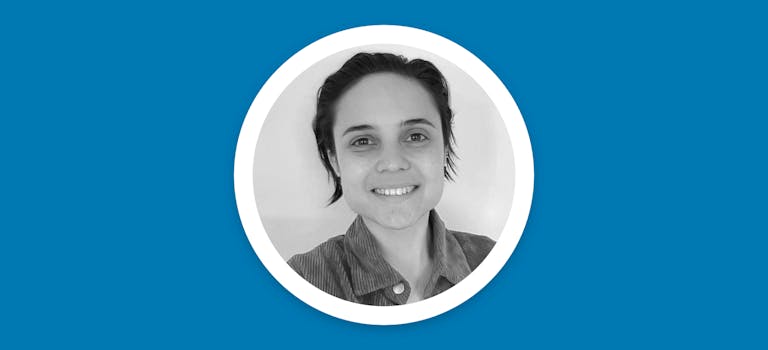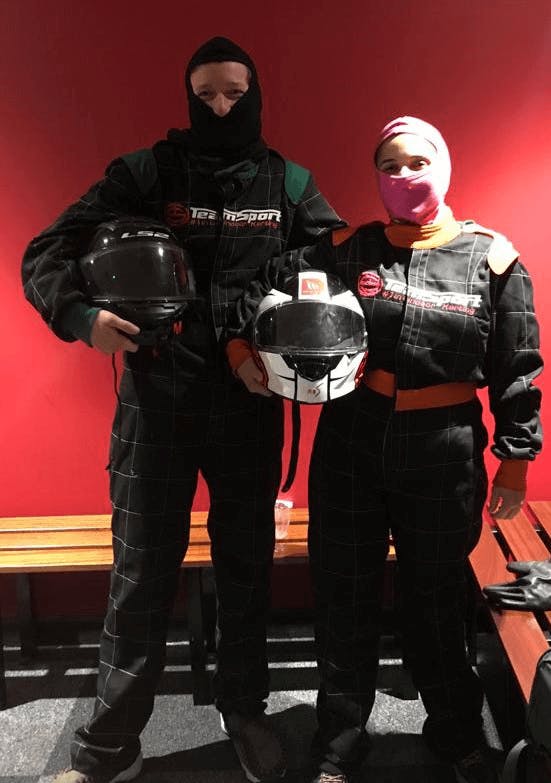
The Academy: Anna’s time at thinkmoney as a new developer
14th Sep 2021
thinkmoney
I’m a few weeks into my new life as a Foundation Software Developer after having completed the Manchester Codes Software Engineering bootcamp. Everyone I’ve met has been friendly and welcoming. I’m also very fortunate to have joined the company alongside a long-time friend of mine, Lucy Ironmonger, so I’m starting to feel right at home here. The onboarding process has been well thought-out and nicely paced, giving us a lot to do and think about without being overwhelming. There’s a lot to consider when onboarding newbies, especially since this is a whole new profession for us, as well as a new company and team. Software Engineering Manager, Ehsan Imran, has done an excellent job of putting together an engaging and enjoyable programme.
What have I learnt?
So far, we’ve covered an overview of Engineering and Product, Agile Fundamentals, the Software Development Lifecycle, Quality Assurance and testing and Wage Processing. We’ve had meet-and-greets with senior members of the team to build a picture of all the moving parts that work together to fulfil the thinkmoney mission of helping people stay in control of their finances. IT and Engineering build the systems that help achieve this, but as Foundation Developers, our role first and foremost is to learn.
Before we can begin to add value there are some basics we need to get to grips with, and this takes up our first two months. We’re provided with some guiding principles for this first phase: observe, learn and think. Give attention to new relationships, seek first to understand, ask why, and finally, ask questions out of curiosity as much as out of need. I’ve found that the Professional Developers and my manager are more than happy to provide us with opportunities to implement these principles and answer our many questions. My assigned buddy, Charlie, regularly shows me what they’ve been working on, which gives me a nice window into the world of thinkmoney app development in OutSystems, which I’ll soon be delving into myself.
Learning OutSystems, a low-code platform that allowed thinkmoney to quickly develop a new app to better meet customer requirements, is our first port of call. I’ve been spending the majority of my time over the past month working my way through the online tutorials which introduce us to the basics of this visual integrated development environment (IDE). Until starting here, I’d only coded in HTML, Cascading Style Sheets (CSS), JavaScript and React, in more traditional environments such as Visual Studio Code. So switching to a visual approach is a bit of a mind-shift. Almost immediately I could see the business benefit in situations where time is of the essence; it’s incredibly fast to get going and put together a mobile application or website. Its limitations are also apparent; the payoff for speedy development is decreased control and flexibility. However, it’s a very beginner-friendly development platform as much complexity is hidden under the hood, but it still demands you to think carefully about things, such as logic flows, app architecture and database design.
There are two OutSystems courses on the menu, and on completing the first, I wanted to try to apply what I’d learnt. Tutorials have their place, but no learning is complete without a project or two to put what you’ve learnt to the test. Lucy had the idea of creating a Wiki to serve as a glossary of OutSystems terms. A great idea in itself for a resource we can continue to develop, but also very fitting for us to implement certain features learnt about in the course. For example, displaying data from a database in list form with sorting options, returning records based on user input, pagination, forms and role-based security. We gave ourselves a day to create an MVP (minimum viable product) and then we presented it to our manager Ehsan and our buddies, who all raised interesting questions and gave us useful feedback, with which we can continue to develop the project. Completing this mini project was a great way to consolidate what we’d learned on the course and highlight any weak areas to follow up on.
A highlight of each week so far has been the couple of hours dedicated to tackling katas (coding exercises). An important development approach at thinkmoney is Test Driven Development (TDD) and the katas. To do so, we turn acceptance criteria of the problem into tests and build up our solutions one step at a time. This forces us to break the problem down into small, manageable chunks, and helps me avoid trying to run too far ahead which often results in confusion. It’s been really useful, and fun, to complete these exercises with my buddy and get the insight and guidance of a more experienced developer.

It's not all work and no play
My experience of integrating into thinkmoney hasn’t all been about work though. In the second week, Lucy and I went go karting with Head of Engineering, Paul Clarkin and Senior Developer, Ian Hill. I don’t drive and had only been go karting once many years ago, so you can imagine how it went. I crashed into the barriers, needed rescuing twice, got black flagged (told off) twice and came last on the leader board, but it was fun nonetheless!
One massive perk of working at thinkmoney is the gym and personal trainers, James and Adam. I’d been trying to convince myself to start going to the gym for a while, and now I’ve got no excuse. In my second week, I tried my first gym class and the following week I had my first session with PT James who gave me a gruelling routine to do every week. Combined with cycling into work as much as I can, thinkmoney has already improved my health and wellbeing. There’s no better way to end the working day than by cycling along the canal on a sunny summer evening.
There’s so much more I could say about the past few weeks, but in summary, I feel like I’ve landed in the best place for me at this time. At thinkmoney, I have the opportunity to work on meaningful projects with a fantastic team, develop myself both professionally and personally, and ultimately become an excellent developer. I can’t wait to see where this new path takes me.
< Back to articles
